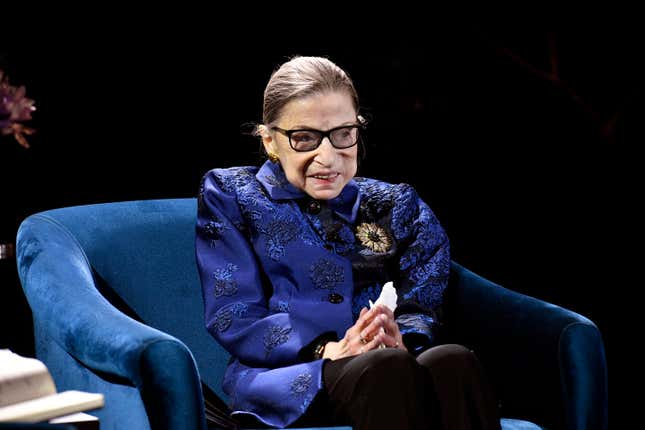
Ruth Bader Ginsburg, the champion for women’s rights, died on Friday evening from “complications of metastatic pancreas cancer,” according to a statement from the Supreme Court of the United States.
Known to many as “the Notorious RBG,” Ginsburg, 87, served more than 27 years on America’s highest court after being nominated by President Bill Clinton in 1993, making her the second woman to serve on the Supreme Court.
Born Joan Ruth Bader on March 15, 1933, in Brooklyn, N.Y., “Kiki”—as she was known to friends and family during her youth—received her bachelor of arts degree from Cornell University, studied at Harvard Law School and earned her LL.B. from Columbia Law School. In 1971, she was instrumental in launching the Women’s Rights Project of the American Civil Liberties Union and served as the ACLU’s general counsel before being appointed to the U.S. Court of Appeals’ D.C. Circuit in 1980, long thought to be a training ground for future Supreme Court justices. When Barack Obama signed the Lily Ledbetter Fair Pay Act of 2009 as his first legislative act as president, he credited Justice Ginsburg for inspiring the law.
She had battled cancer for more than a year before passing away at her Washington, D.C., home surrounded by family.
Ginsburg gave her last statement to her granddaughter Clara Spera: “My most fervent wish is that I will not be replaced until a new president is installed.”
In 2016, after the death of Justice Anthony Scalia, Senate Majority Leader Mitch McConnell blocked Obama’s SCOTUS nominee Merrick Garland from being confirmed by the Senate, explaining that the presidential election season was no time to rush such an important decision.
This time will probably be different.
Updated, 9/18/20, 8:58 p.m. ET: The story has been updated to include Ginsburg’s last statement.



